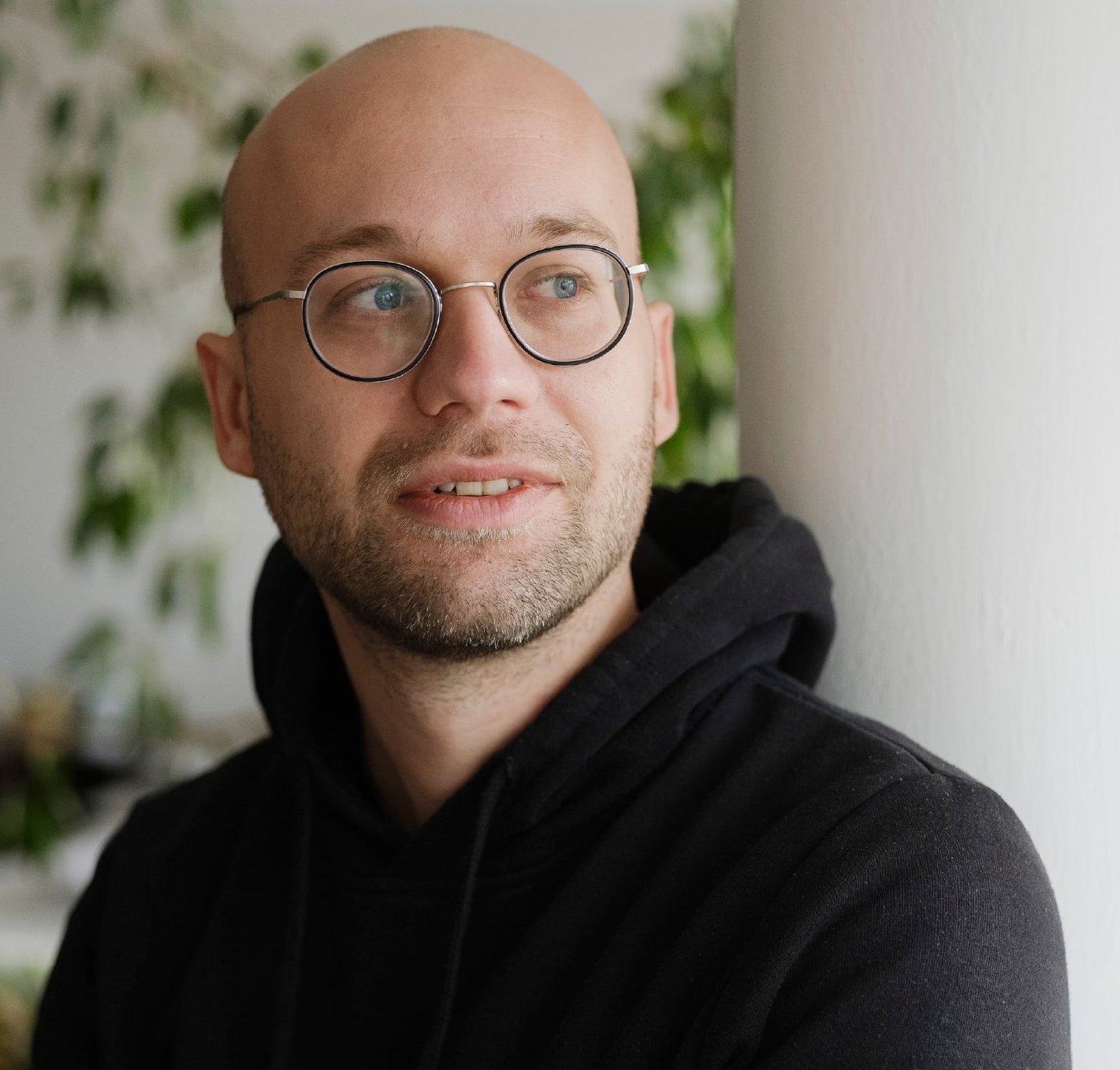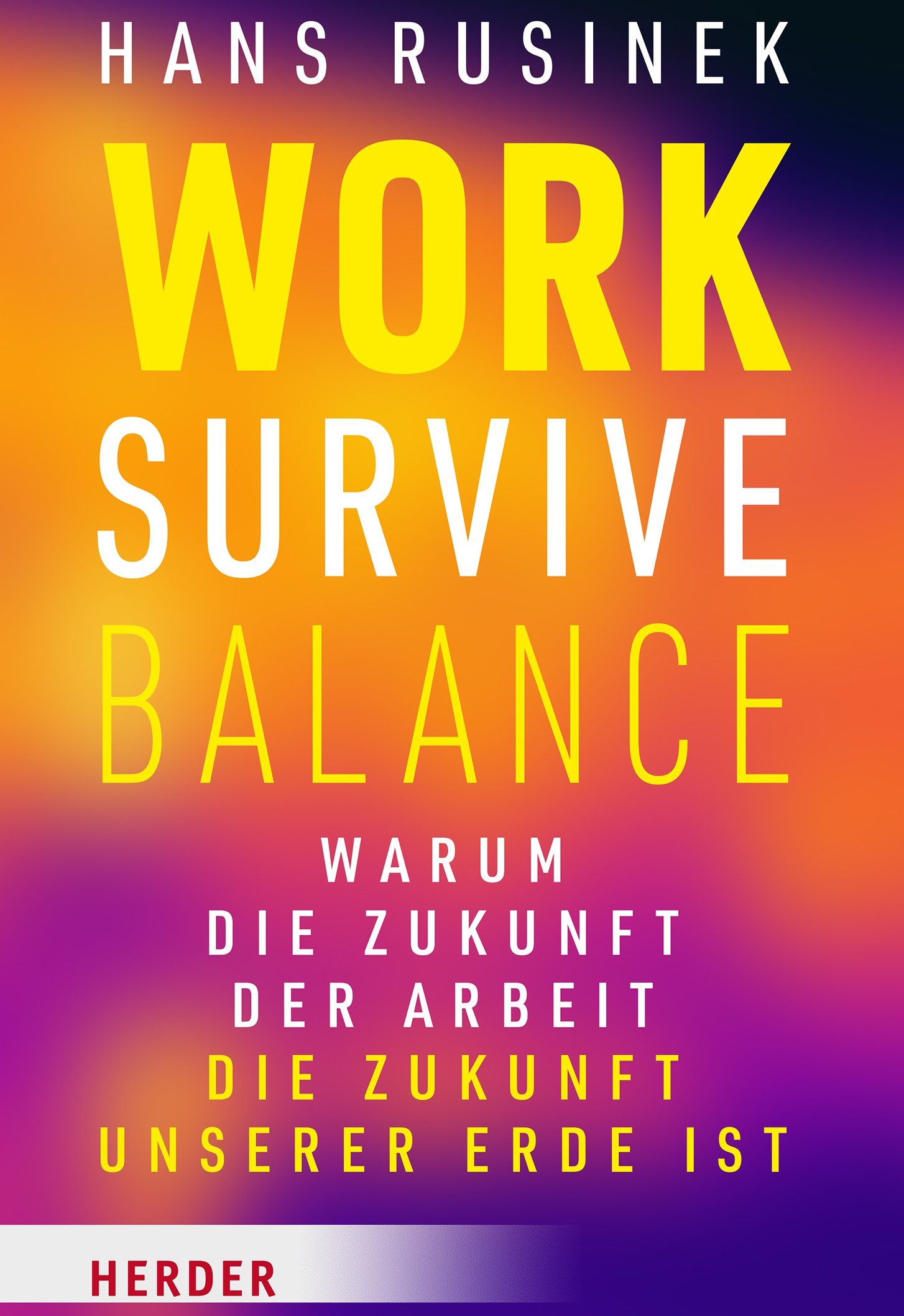Research - 03.11.2023 - 10:00
HSG work researcher Hans Rusinek combines sustainability and New Work
HSG philosopher Hans Rusinek says that today's way of working endangers our survival. Rusinek therefore closely links the current upheaval in the world of work with sustainability: work must become "suitable for grandchildren".

designer hand working laptop with green plant foreground on wooden desk in office
The interview is conducted by labour researcher Hans Rusinek on the phone while he walks through his hometown of Hamburg. "I try to live one of my approaches to improving the world of work myself: Knowledge work must become more physical and increasingly embedded in the environment," says the 34-year-old. According to Rusinek, who is currently doing his doctorate at the HSG, those who experience their environment sensually become more aware of their responsibility for it. He is investigating the influence of the question of meaning and the goals of organisations on work.

Because the world of work is in a state of upheaval - a shortage of skilled workers, digitalisation and flexibilisation are just three of the keywords - Rusinek's expertise is in demand: he advises corporations and SMEs in their search for a "purpose". For his dissertation at the University of St. Gallen, he studied a German automotive company over the past three years. "In the course of the mobility change, this company has to set itself new goals. At the same time, these goals should be supported by the employees," says Rusinek. Many organisations today are facing such a reorientation because: "Work - and primarily knowledge work - is in a crisis of meaning," says Rusinek.
Covid left, the question of meaning remained, the climate crisis anyway
This crisis of meaning is caused by various factors. First, confidence in the system was shaken by the financial crisis of 2008. Then the corona pandemic, as a "collective near-death experience", intensified the reflection on the meaning of work.
"Workers realised that their digital activities on the screen hardly differed from each other and that much of it ultimately remained abstract - and not at all relevant to the system," says Rusinek. "Some people expected that the pandemic would push questions about individual meaning and entrepreneurial purpose into the background as 'luxury problems' - the opposite was the case: especially in crises, the question of why becomes even more important."
In addition, climate change today raises pressing questions about the individual responsibility that one's own work has for this ecological crisis. For it is the world of work that implements our unsustainable use of resources - but which can also be the starting point for a re-learning process. "Of course, modern work has created a lot of wealth since the industrial revolution. But today we also have to realise: We have worked off the planet and our future is at stake, including the future of our work," says Rusinek, who is a member of Think Tank 30 Germany of the growth-critical Club of Rome.

Work routines turn us into zombies
Rusinek has just published a book entitled "Work-Survive-Balance: Why the Future of Work is the Future of our Earth" with the tradition-rich Herder-Verlag. "In my work with companies, I noticed that discussions about 'new work' often focus on purely technical innovation as the only means to solve environmental problems - less often it is about exno-vation, that is, ending harmful practices." Instead of relying solely on new technologies, however, a fundamental change of attitude towards a "grandchild-friendly" world of work is needed.
In the book, Rusinek first takes a look at environmentally harmful practices in the world of work - he wants to criticise forms of action and not individual groups, he writes. Practices are built on learned skills, infrastructures such as laws or spaces, and social attitudes such as beliefs or desires. "Once learned, practices allow us to walk through our (working) world as if on autopilot. Practical, because we quickly get to work (...). Damn impractical when these programmes pull us zombie-like into the abyss," he writes. In the interview, Rusinek says that our way of dealing with time, our basic hurriedness without reasons, is a problematic practice that shapes the world of work: "In everyday life, we hardly find time for a deeper thought. Those who work like this do not question their actions. This culture of 'busyness' thus suppresses the real problems."
The workplace as a laboratory for the future
In a kind of outlook, Rusinek formulates nine dimensions of change, of which the aforementioned toning of physicality is one and the handling of time is another. Others concern, for example, how we deal with intelligence, be it human, ecological or artificial, or a respectful attitude towards all kinds of work, not just knowledge work.
In this way, he wants to define the preconditions that a working world needs in order to re-learn in the face of the climate crisis. "My book cannot provide ready-made solutions that companies can simply adopt for their change - solutions all organisations have to find for themselves." This also includes involving employees in finding solutions, in the search for a new meaning in their work. "Meaning cannot be managed or prescribed. You have to create vessels in which it can be made possible together," says Rusi-nek.
He also emphasises that he is not against work. "We don't primarily need to work less, but more productively, instead of hiding behind busyness." The world of work is also an important place for developing new social practices and norms, he says. "It is the place where we can start to relearn about the climate crisis in a non-traumatising and collaborative way. Otherwise, we would only be left with coercion. We should therefore consider the world of work as a real laboratory for a future fit for grandchildren," Rusinek writes.